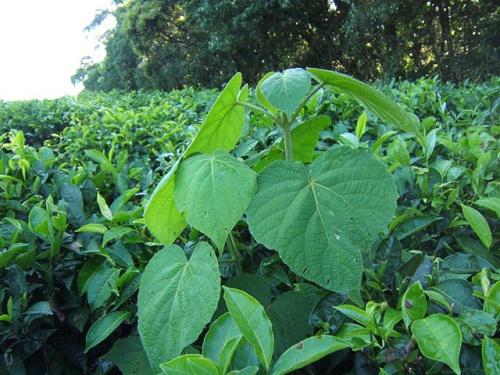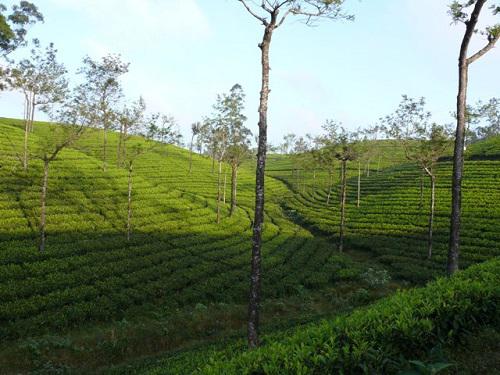Chetan Halandur Chandrashekara
This project will identify the biological constraints of restoration in a natural setting across a tea plantation matrix in Western Ghats and determine what land management efforts are needed for quick restoration of native species.

Active tea plantation (Clerodendrum sp colonized).
All over India tea plantations had taken a large part of the forest area in the early 1900’s. These plantations have come up in private lands or in government lands that have been leased out. With expiry of lease, these lands go to the government who are in a dilemma of retaining tea or bring back the forest. Many private tea estates outside PA’s are more likely to be converted for eco tourism if there is a continued fall of tea prices in the international market. As of now only large tea estates are surviving and small ones have closed down. In some places the insurgency activities have made people to abandon tea estates. There are issues of resettlement and livelihoods of people from these areas which will have strong influence on how the policies are made.

Active tea plantation with perch.
Though people issues are often aggressively addressed there is very little knowledge on what to do if the land needs to be restored for biodiversity conservation. By forming a protocol for restoring tea estates we could provide alternates to how such areas especially outside the PA could be used for ecotourism and even sustainable harvest of forest produce from naturally regenerating forests.
This project will address issues relating to how best can we restore abandoned tea field to harbour biodiversity and what are the biological, social and legal constraints in doing so needs to be identified from a conservation view point. This project in the first phase will identify the biological constraints of restoration in a natural setting across a tea plantation matrix in Western Ghats and determine what land management efforts are needed for quick restoration of native species. It will develop a model for cost effective restoration of native species which will benefit forest mangers and tell them how best to restore native primary species in abandoned tea or coffee plantations.